Hiroto is a Japanese name meaning “great flight” or “big soar,” symbolizing strength and ambition.
200+ Japanese Boy Names & Their Meanings
Being a parent is a big responsibility. If you’ve recently given birth to a child, as a new parent, you’ll have enough responsibilities towards your bundle of joy, deciding an attractive name for him being one of them. Modern times call for modern names, and we know as a millennial parent, you’ll want a unique (and meaningful) name for your child. So how about selecting a name from a different culture? Pretty unique, right? We bring you a list of Japanese boy names to help you pick the best name for your kiddo! And trust us, whether or not you’re from Japan, you will like these Japanese names.
Unique Japanese Names for Baby Boy
If you are in search of some unique Japanese names for your baby boy, we’ve got that too. Check out the list below and take a pick. Your son will carry the name with him forever, so choose wisely.
1. Aito
A modern Japanese name meaning “darling person” or “love and sincerity.”
2. Akio
Akio stands for “bright man” or “man of wisdom and heroism.”
3. Asahi
Asahi represents the “morning sun,” symbolizing new beginnings and positivity.
4. Daisuke
It means “great help” or “big support,” known for dependability and strength.
5. Enkai
The name Enkai Refers to “Deep ocean water or “vast ocean,” symbolizing depth and mystery.
8. Hajime
It Means “beginning” or “first,” often used for firstborn sons or new starts.
10. Hiroto
11. Hisashi
The name means “long life” or “eternal,” symbolizing longevity and endurance.
12. Isamu
Isamu Signifies “bravery” or “courage,” often linked with strength and valor.
13. Isao
The name suggests “honor” or “merit,” reflecting a respectable and noble character.
14. Itsuki
Itsuki mean “tree” or “timber,” symbolizing stability and natural strength.
15. Izanagi
In Japanese mythology name referring to the god of creation in Japanese Shinto beliefs.
16. Junichi
Junichi means “obedient first son” or “pure one,” often used for eldest boys.
17. Kaede
The name is taken from the name of the maple tree in Japanese, symbolizing grace and seasonal beauty.
18. Katashi
This means firmness and is used across cultures to denote the disciplined one.
19. Kazuhiko
Kazuhiko Means “harmonious prince” or “peaceful boy,” blending calm with strength.
20. Kei/Kou
It means “blessing,” “respect,” or “light,” depending on the kanji.
21. Ken
This name is used for a boy with the qualities of being studious, strong and healthy and modest.
22. Kenta
Kenta means “strong and large,” often associated with athleticism or power.
23. Kin
The name kin refers to “gold” or “metal,” symbolizing value, wealth, or strength.
24. Masaru
This name Stands for “victory” or “superior,” indicating excellence and success.
25. Matsumoto
A surname-derived name meaning “origin of the pine tree,” tied to endurance.
26. Minori/ Minoru
Minori/ Minoru means “truth” or “to bear fruit,” reflecting growth and honesty.
27. Saburo
The name saburo means “third son,” used for third-born boys in families.
28. Shohei
The name means “respectful and peaceful,” showing harmony and discipline.
29. Takao
The name is meant to denote the hero who is both prosperous and noble-hearted
30. Takumi
Takumi Means “artisan” or “skillful,” associated with mastery and talent.
Cute Japanese Names for Boys
Modern first names in modern Japan include male japanese names meaning fire, names that connote whether they are the first, second or third born like Ichiro meaning the firstborn son or Jiro meaning the second-born son. If you want a cute name for your son, take a look at the list given below.
1. Akira
Arata conveys the meaning of fresh or new, perfect for a beginning.
5. Chikyu
7. Daku
Daku is a name means darkness, giving it a mysterious and bold feel.
8. Dosei
Dosei is a Japanese name that means Saturn, symbolizing discipline and cosmic order. It can also be poetically linked to Nature’s soil, grounding the name in strength and stability.
9. Eiji
A popular name for the second son, it means prosperity, peace, and eternity
10. Endo
This name is the ancient name of Lake Hamana of Japan. It typically means distant wisteria, combining elegance with depth.
14. Hifumi
Hifumi refers to the beginning steps or first numbers. It’s a poetic name symbolizing origin and order.
15. Iwao
It means rock or stone man, suggesting firmness and resilience.
16. Katsu
Victorious; Katsuo, Katsumi and Katsuro are a few variations of this name
17. Kentarō
Kentarō means healthy and strong first son. It’s a bold name with traditional strength.
18. Kōsuke
Kōsuke stands for shining help or supportive light. It suggests warmth, leadership, and trust.
19. Masaaki
Masaaki conveys righteous brightness, symbolizing integrity and clarity.
20. Michi
This name means the path or way, tied to life’s journey.
21. Minato
The name Minato is of Japanese origin and means “harbor” or “port.” It symbolizes a safe place, calmness, and the idea of being a refuge or starting point for new journeys.
22. Naoki
This name means honest tree, linking truthfulness with natural strength.
23. Osamu
Osamu implies discipline or order, reflecting calm leadership.
24. Raiden
This name stands for thunder and lightning god, powerful and energetic.
25. Ryuu
Ryuu means dragon, representing strength, wisdom, and myth.
26. Satoshi
This popular name means the wise man blessed with wit and clarity of thoughts
27. Shin
This name has various meanings; it means a gentleman, belief, humble, advancing, new, true, etc.
28. Show/Sho
Show/Sho is a name meaning fly, soar, or shine, often linked to ambition.
29. Sora
The Japanese term for the sky and implies the vastness of positive thoughts
30. Tadao
The name means the loyal one or a great friend,symbolizing devotion and dependability.
31. Takeo
In Japanese, it means the warrior man or brave hero, full of strength.
32. Takeru
Takeru means brave or fierce warrior. It carries the essence of courage and determination.
33. Takeshi
The name Takeshi means of fierce or military warrior.
34. Tsukiyomi
As per Japanese mythology amd Shinto religion, it is the name of the moon God.
35. Umi
Umi simply means sea, evoking depth, calm, and adventure.
Popular Japanese Baby Boy Names
Here are some rare Japanese boy names and meanings. Pick the one you like the most!
1. Aki
Aki name is associated with autumn or brightness, it carries a warm and vibrant tone.
2. Akihiko
This name means bright prince, symbolizing wisdom and nobility.
3. Ankoku
The name Ankoku means darkness, giving it a rare and mysterious edge.
4. Botan
The peony flower, which is a symbol of honour and wealth
5. Dai
A traditional Japanese name for baby boy which means large
6. Fuji
Beautiful; this name is also given to boys to honour the majestic mountain
7. Haru
A popular name meaning spring, it suggests renewal and warmth.
8. Haruki
This name stands for shining sun or spring tree, full of life and light.
9. Haruto
Haruto is a Japanese name meaning “sunlight” or “spring sunshine,” symbolizing warmth and renewal.
10. Hinata
The name Hinata is of Japanese origin and can mean “sunny place” or “towards the sun,” depending on the kanji used. It symbolizes warmth, brightness, and a positive spirit.
11. Hiroshi
A traditional Japanese name which means generous
10. Issey
Issey is a Japanese name meaning first-born. It symbolizes new beginnings and carries a sense of importance and tradition.
11. Iwai
A name that conveys celebration or congratulations, full of joy.
12. Jiro
Jiro means second son, it is traditional yet timeless.
13. Juro
The name Juro Sgnifies tenth son or long life, reflecting endurance.
14. Kane
This name means gold or money, often tied to prosperity.
15. Kaneko
The name Kaneko means golden child, a symbol of preciousness.
16. Kai
The Japanese name Kai commonly means “sea” or “ocean.” It evokes calmness, depth, and a free-spirited nature.
17. Kenji
Kenji Stands for intelligent second son or strong and wise.
18. Maro
Maro is a Japanese name that often means myself or I, reflecting a sense of individuality and personal identity. It’s a traditional name with a calm and introspective feel.
21. Nishimura
Nishimura is a Japanese surname meaning “western village.” It reflects peaceful rural roots and a connection to nature and tradition.
22. Nobu
It means to have faith or trust, reflecting inner strength and honor.
23. Oda
A historic surname meaning small rice paddy, tied to heritage.
24. Oki
A bold name meaning thunder god, linked to Raijin.
26. Raijin
Raijin named after the god of thunder and storms, full of energy.
27. Ren
The name Ren means lotus or love, simple and elegant.
28. Rio
A fragrant white flower like the cherry blossom or Jasmine
29. Seiji
Seiji is a Japanese name meaning truthful or governing with justice. It reflects integrity, wisdom, and strong leadership qualities.
30. Shinjiro
This name reflects true second son, suggesting loyalty.
31. Suzuki
32. Tora
This unisex name means tiger , evoking courage and boldness.
33. Takashi
Takashi Symbolizes nobility or esteem, a name of respect.
34. Yuuma
Male name of Japanese origin that means truthful or gentle truth, calm and sincere.
35. Yukio
The name means snow-boy and is apt for boys born around the Christmas season. A variation of the name is Yuki.
Common and Cool Japanese Names for Boys
Explore a blend of tradition and trend with these common and cool Japanese names for boys, each carrying unique significance.
1. Fuyuhiko
“Winter Prince.” This name combines the elegance of winter with the strength associated with royalty.
2. Fuyuhiro
“Vast Winter.” It reflects the grandeur and expansiveness of the winter season.
3. Fuyuki
“Winter Tree.” This name evokes the imagery of a strong, enduring tree in the winter landscape.
4. Fuyuyoshi
“Winter Righteousness.” This name embodies a sense of moral integrity and virtue associated with winter.
5. Osuke
“Cultivated.” It signifies a person who is refined and cultivated, embodying qualities of wisdom and sophistication.
6. Rin
“Dignified.” It signifies a person with a composed and dignified demeanor, evoking a sense of inner strength.
7. Ritsu
“Law or Discipline.” It embodies a sense of order and discipline, reflecting a person with a strong sense of justice.
8. Shugo
“Guardian.” This name conveys the sense of protection and watchfulness, symbolizing a guardian-like presence.
9. Shuta
“Cultivated Hero.” This name combines the qualities of wisdom and bravery, symbolizing a cultivated and heroic individual.
10. Shuto
“Cultivated Fighting Spirit.” This name combines the qualities of wisdom and determination in the pursuit of excellence.
11. So
“Blue or Pale.” It conveys a sense of calm and tranquility, evoking imagery of serene skies or gentle waters.
12. Sogo
“Harmony and Greatness.” It represents a person who strives for harmony and greatness in all aspects of life.
13. Tatsuki
“Achievement and Tree.” This name symbolizes growth, accomplishment, and the strength associated with a sturdy tree.
14. Touji
“Winter Administrator.” It combines the imagery of winter with the role of an administrator or leader.
15. Touki
“Radiant Brilliance.” It signifies a person who shines brightly, exuding a sense of radiance and brilliance.
16. Yuma
“Courageous Horse.” This name combines the attributes of bravery and strength, symbolizing a courageous and powerful individual.
Short and Long Japanese Names for Boys
From brief and snappy to grand and illustrious, explore this list of attractive Japanese boy names, each with distinct charm and significance.
1. Fuyuichirou
“First Son of Winter.” It signifies a special connection to winter, often associated with a firstborn.
2. Fuyuhito
“Winter Person.” This name evokes imagery of a person who embodies the essence and qualities of winter.
3. Hideyoshi
“Excellent Luck.” This name signifies a person blessed with outstanding fortune and success in various endeavors.
4. Hirohito
“Abundant and Benevolent.” It embodies the qualities of generosity and abundance, often associated with a kind heart.
5. Kazuyuki
“Harmony and Happiness.” This name combines the concepts of unity and joy, symbolizing a harmonious and joyful life.
6. Kyō
“Capital City.” This name carries a sense of grandeur and significance, reflecting importance and prominence.
7. Masahiko
“Elegant Prince.” It combines the attributes of grace and royalty, symbolizing a prince with refined elegance.
8. Nao
“Honest and Straightforward.” It signifies a person with a sincere and direct nature, often associated with integrity.
9. Nobutoshi
“Faithful and Wise.” This name embodies qualities of loyalty and wisdom, reflecting a person of trustworthiness.
10. Shinsuke
“True Assistance.” This name embodies the qualities of genuine support and helpfulness, reflecting a reliable nature.
11. Shō
“Soar.” It symbolizes a person with the ability to rise above challenges and reach great heights.
12. Shun
“Swift and Talented.” It signifies a person of great skill and agility, often associated with swiftness and excellence.
13. Takahiro
“Noble and Abundant.” This name conveys a sense of nobility and abundance, symbolizing a person of high stature.
14. Tōru
“Pierce Through.” It signifies a person with a determined and resolute nature, often associated with perseverance.
15. Yori
“Reliable.” This name signifies a person who is trustworthy and dependable, often associated with reliability and trustworthiness.
16. Yuki
“Happiness.” This name embodies the concept of joy and contentment, symbolizing a life filled with happiness.
17. Yuta
“Brave and Thick.” It combines attributes of courage and strength, often associated with a sturdy and bold nature.
Powerful Japanese Baby Boy Names
Discover a collection of formidable Japanese baby boy names, each imbued with strength, authority, and a profound sense of significance.
1. Chihiro
Japanese name meaning “a thousand questions” or “wisdom,” often associated with intellectual curiosity and depth of thought.
2. Daichi
Japanese name meaning “great wisdom” or “large earth.”
3. Fumihito
Japanese name signifying “man of abundant beauty” or “person of profound beauty.”
4. Fuyuta
A Japanese name with a possible meaning of “winter rice paddy” or “rice field in winter.”
5. Fuyuto
A variant of Fuyuta, potentially meaning “winter rice field” or “rice paddy in winter.”
6. Haruma
Japanese name translating to “spring” (haru) and “true” or “genuine” (ma), symbolizing the arrival of genuine spring.
7. Haruya
Japanese name with “spring” (haru) and “valuable” or “precious” (ya), suggesting the arrival of a precious springtime.
8. Hiro
Japanese name meaning “generous” or “tolerant,” representing a person with a broad and accommodating nature.
9. Katsurō
Japanese name composed of “victory” (katsu) and “son” (rō), conveying the idea of a victorious or successful son.
10. Kazuo
Japanese name combining “harmony” or “peace” (kazu) and “man” (o), conveying the idea of a peaceful and harmonious man.
11. Masashi
Japanese name meaning “true” or “correct” (ma) and “direct” or “straight” (shi), indicating a person with honesty and integrity.
12. Naruhito
Japanese name meaning “a person who will become accomplished” or “a person who will achieve greatness.”
13. Nobuyuki
Japanese name signifying “faith” or “trust” (nobu) and “happiness” or “joy” (yuki), expressing the concept of trustworthy happiness.
14. Seriya
A unique name with no widely recognized meaning in Japanese. It could be a creative or personalized name.
15. Shuji
Japanese name signifying “excel” or “prosper” (shu) and “second” or “son” (ji), suggesting a successful and prosperous son.
16. Toya
Japanese name meaning “door” or “house” (to) and “valuable” or “precious” (ya), symbolizing a precious entry or valuable home.
Numerical Japanese Names for Boys
Delve into a numerical realm with these unique Japanese names for boys, where numbers carry cultural and symbolic significance.
1. Goro
“Fifth Son.” Signifies the fifth son in a family, often associated with traits of determination and resilience.
2. Hachiro
“Eighth Son.” Signifies the eighth son in a family, carrying a sense of uniqueness and distinction within the family.
3. Ichiro
“First Son.” Signifies the eldest son in a family, embodying honor and responsibility as the first-born child.
4. Kuro
“Ninth Son.” Reflects the position of being the ninth son in a family, embodying a sense of individuality and significance.
5. Rokuro
“Sixth Son.” Represents the sixth son in a family, carrying a sense of individuality and distinction within the family.
6. Shichiro
“Seventh Son.” Holds the significance of being the seventh son, symbolizing a special position within the family hierarchy.
7. Shiro
“Fourth Son.” Reflects the position of being the fourth son in a family, carrying unique familial significance.
Japanese Baby Boy Names Meaning Dark
Embrace the enigmatic with these Japanese baby boy names, each carrying the intriguing essence of ‘dark’ and its unique symbolism.
1. Junichiro
Junichiro implies pure-hearted or obedient first son. It’s a gentle name rooted in tradition.
2. Ryusei
Ryusei means shooting star or dragon spirit. It symbolizes power, motion, and brilliance.
3. Sho
Sho means to fly, soar, or excel. It suggests success, freedom, and high ambition.
4. Sota
Sota means grand or lively. The name carries a strong and uplifting tone.
5. Taiga
Taiga reflects a grand river or bold journey. It’s a powerful name full of natural energy.
6. Yuto
Yuto stands for gentle excellence or helpful spirit. It reflects kindness and a strong inner light.
Japanese Baby Boy Names That Mean Fire and Water
Embark on a journey of elemental symbolism with these Japanese baby boy names, evoking the power and balance of fire and water.
1. Atsushi
Atsushi means sincere or kind-hearted. It reflects dedication, warmth, and inner strength.
2. Benjiro
Benjiro means peaceful second son or joyful peace. It’s a name full of warmth and harmony.
3. Genkei
Genkei stands for dignity and respect. It suggests someone with noble character and strong values.
4. Giichi
Giichi refers to a just and fair ruler. It carries a sense of wisdom, balance, and authority.
5. Hibiki
Hibiki means echo or sound. The name evokes emotion, connection, and artistic resonance.
6. Kaimen
Kaimen means kindle. It symbolizes the spark of inspiration, new beginnings, and creative energy.
7. Kaito
Kaito translates to sea or ocean. It reflects strength, vastness, and a spirit of exploration.
8. Kaiyō
Kaiyō means ocean or sea. It evokes mystery, boundless depth, and calm determination.
9. Kazuya
Kazuya stands for harmony and peace. It’s a calm, balanced name with a friendly tone.
10. Keisuke
Keisuke signifies blessed assistance or righteous help. It carries a warm, supportive feeling.
11. Kenshin
Kenshin combines humility and truth. It reflects a noble heart and strong moral grounding.
12. Kiyoshi
Kiyoshi is a name meaning pure, bright, or quiet. It reflects calmness and mental clarity.
13. Kota
Kota means great peace or big harmony. It’s gentle yet strong, evoking a peaceful nature.
14. Masahiro
Masahiro conveys broad-mindedness and justice. It symbolizes wisdom and moral strength.
15. Masaki
Masaki combines elegance and growth. It often refers to a graceful tree or vibrant energy.
16. Minakami
Minakami means source of water. It symbolizes purity, renewal, and natural beginnings.
17. Norio
Norio stands for a man of principle or law. It reflects discipline, integrity, and purpose.
18. Shimizu
Shimizu means clear water. It conveys purity, transparency, and clarity in thought or spirit.
19. Shinichi
Shinichi means true firstborn or genuine one. It symbolizes sincerity and thoughtful leadership.
20. Souta
Souta symbolizes a grand sound or strong wind. It conveys freshness, liveliness, and strength.
21. Tetsuya
Tetsuya means philosophy or steel-like wisdom. It suggests a thoughtful and determined spirit.
22. Tomoya
Tomoya means wise and harmonious. It blends intelligence with a calm, friendly nature.
23. Touma
Touma implies honest truth or spirited horse. It reflects courage, integrity, and strong will.
24. Yamato
Yamato is linked to ancient Japan. It stands for tradition, harmony, and national pride.
Celestial Japanese Baby Boy Names
Embark on a celestial journey with these Japanese baby boy names, each inspired by the cosmic wonders of the universe.
1. Hoshi
“Star.” Evokes the brilliance and cosmic wonder of stars, often symbolizing guidance, illumination, and celestial beauty.
2. Keita
Keita signifies respect and blessing. It’s a friendly name that suggests joy and good will.
3. Koki
Koki represents bright hope or shining joy. It’s a cheerful name full of promise.
4. Masato
Masato stands for a true or righteous person. It reflects honor, sincerity, and clarity.
5. Mokusei
“Jupiter.” Reflecting the majesty and intrigue of the planet Jupiter, often associated with expansion and exploration.
6. Myojo
“Morning Star.” Refers to the planet Venus when it appears in the early morning, symbolizing hope, renewal, and guidance.
7. Riku
“Land.” Reflecting the earthly realm, often associated with stability, grounding, and our physical connection to the world.
8. Ryota
Ryota means strong and good. It’s a steady name with calm power and reliability.
9. Shota
Shota means soaring youth or large wings. It reflects strength, adventure, and vitality.
10. Taiyō
“Sun.” Similar to ‘San,’ it signifies the sun’s brilliance and life-giving energy, often associated with vitality and power.
11. Tenmon
“Astronomy.” Embodies the study of the celestial realm, often associated with exploration, wonder, and cosmic knowledge.
12. Tsuki
“Moon.” A direct translation, it embodies the lunar influence, often associated with intuition, emotion, and cycles of change.
13. Tsukikage
“Moonlight.” Evokes the gentle, ethereal glow of moonlight, often associated with serenity, reflection, and subtle beauty.
Mythology Based Japanese Boy Names
Step into a world of ancient legends with these Japanese boy names, each inspired by the rich tapestry of mythology.
1. Fujin
“God of Wind.” Fujin is a deity in Japanese mythology responsible for controlling the winds and storms.
2. Kangiten
“Gods of Bliss.” Kangiten are a pair of elephant-headed deities associated with happiness and marital harmony.
3. Kōjin
“God of the Kitchen.” Kōjin is a deity honored for safeguarding kitchens and food preparation.
4. Kuebiko
“God of Knowledge.” Kuebiko is a deity known for his wisdom and knowledge, often associated with learning.
5. Kuraokami
“Rain Dragon God.” Kuraokami is a deity associated with rain, often depicted as a dragon.
6. Okuninushi
“Great Land Master.” Okuninushi is a deity of nation-building, farming, and medicine in Japanese mythology.
7. Omoikane
“God of Wisdom and Intelligence.” Omoikane is a deity revered for his intelligence and problem-solving abilities.
8. Ryūjin
“Dragon God.” Ryūjin is the dragon deity of the sea in Japanese mythology, often associated with maritime affairs.
9. Suijin
“God of Water.” Suijin is a deity presiding over bodies of water, including rivers, lakes, and ponds.
10. Tajimamori
“Mountain Deity.” Tajimamori is a deity revered for protecting and overseeing mountains in Japanese mythology.
11. Takemikazuchi
“God of Thunder and Swords.” Takemikazuchi is a deity associated with martial arts, thunder, and swords.
12. Tenjin
“God of Learning.” Tenjin is a deity revered for his association with scholarship, education, and academic pursuits.
What Was the Tradition Behind the Baby Naming Process in Japan?
The following are the traditions behind naming the baby in Japan:
1. Cultural Significance
The process of naming a baby in Japan is deeply rooted in cultural traditions. It often involves choosing a name with auspicious meanings, considering the family’s heritage, and sometimes even incorporating elements from Japanese folklore or mythology.
2. Kanji Characters
Kanji, which are characters derived from Chinese script, play a crucial role in Japanese names. Parents often select kanji that not only sound pleasing but also convey positive meanings or aspirations for their child’s future. The combination of kanji can give a name a unique and personalized significance.
3. Family and Ancestral Influence
Many families in Japan prefer to pass down names through generations, especially within the same lineage. This practice maintains a sense of continuity and honours ancestors. It also reflects a belief in the enduring connection between generations.
4. Ceremonial Naming
In some cases, a formal naming ceremony, known as ‘namae-ko,’ is held for the child. This event may involve the presence of close family members and religious figures who offer blessings and well wishes for the child’s future. The chosen name is announced during this ceremony, marking an important milestone in the child’s life.
FAQs
1. Do Japanese Boy Names Have Specific Kanji Characters Associated With Them?
Yes, Japanese male names often have specific kanji characters associated with them. These characters are chosen for their meanings and may vary based on cultural, familial, or personal significance to the child and their family.
2. Are Japanese Names Difficult to Pronounce for Non-Japanese Speakers?
Yes, Japanese names can be challenging for non-Japanese speakers to pronounce accurately due to the unique phonetic sounds and syllabic structure of the Japanese language.
3. Can Japanese Boy Names Be Combined With Other Names or Have Middle Names?
Traditionally, Japanese boy names do not incorporate middle names. However, parents may choose to combine names or use multiple kanji characters to create a compound name, adding personal or familial significance.
These are some cute, modern, and unique Japanese names – discuss these names with your partner and select the perfect name for your child. You can also explore other names before you settle for one. If you have a child or are soon going to have one, we know you must be having dozens of names in your mind. But if you want a different name for your child, you should definitely consider the names from the above lists. Browse through our list of Japanese names for boys and go for a unique name for your kiddo!
Infographic: Japanese Boy Names With Meanings
Also Read:
Hispanic Boy Names
Anime Names for Baby Boys
Asian Boy Names with Meanings
Popular Chinese Boy Names with Meanings
Was This Article Helpful?
Parenting is a huge responsibility, for you as a caregiver, but also for us as a parenting content platform. We understand that and take our responsibility of creating credible content seriously. FirstCry Parenting articles are written and published only after extensive research using factually sound references to deliver quality content that is accurate, validated by experts, and completely reliable. To understand how we go about creating content that is credible, read our editorial policy here.





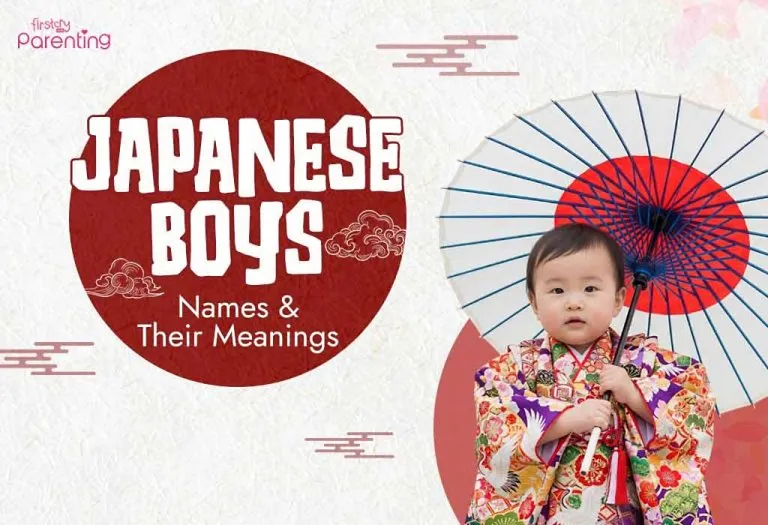




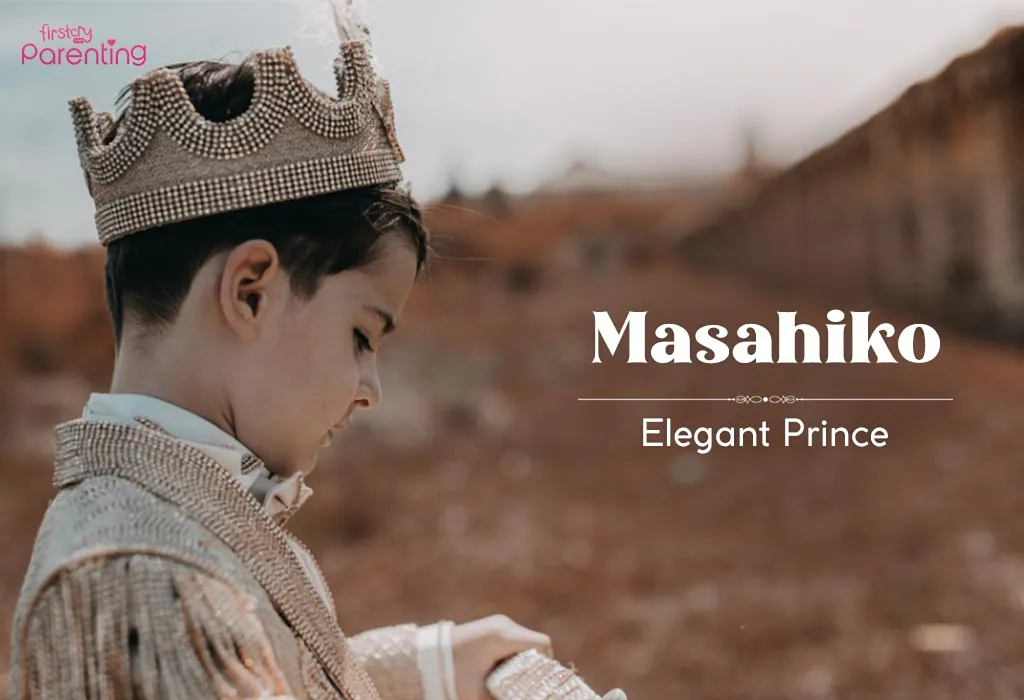
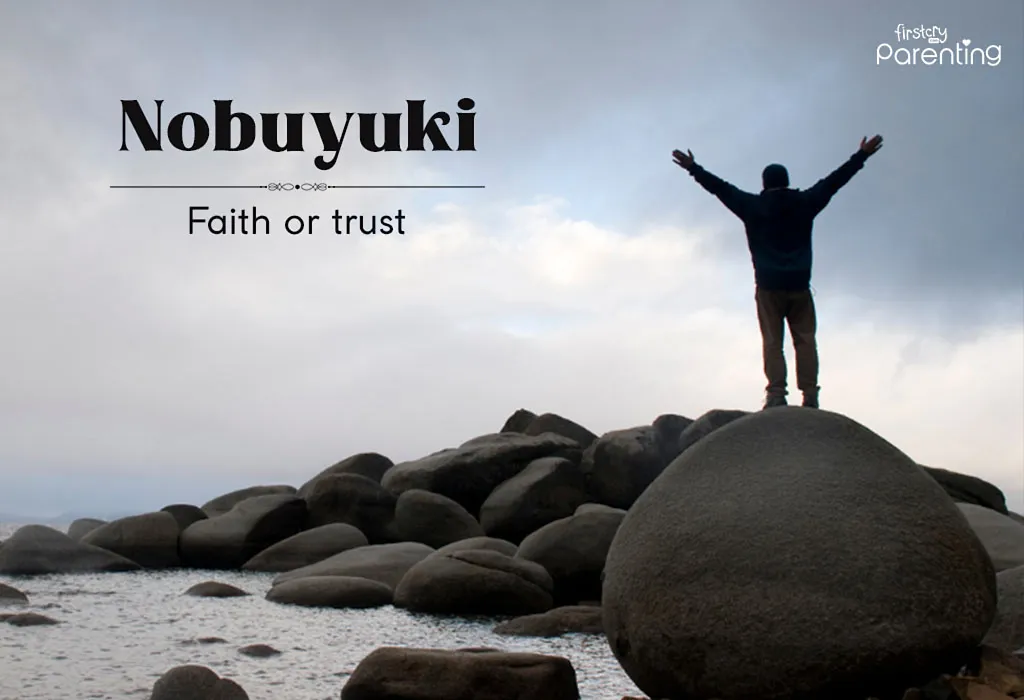
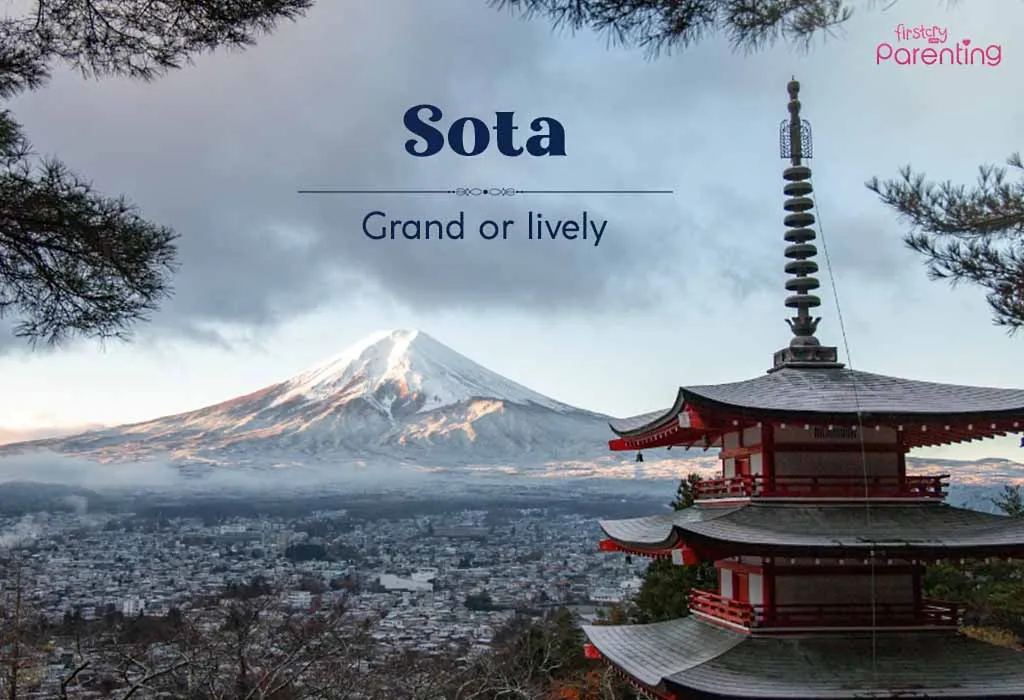


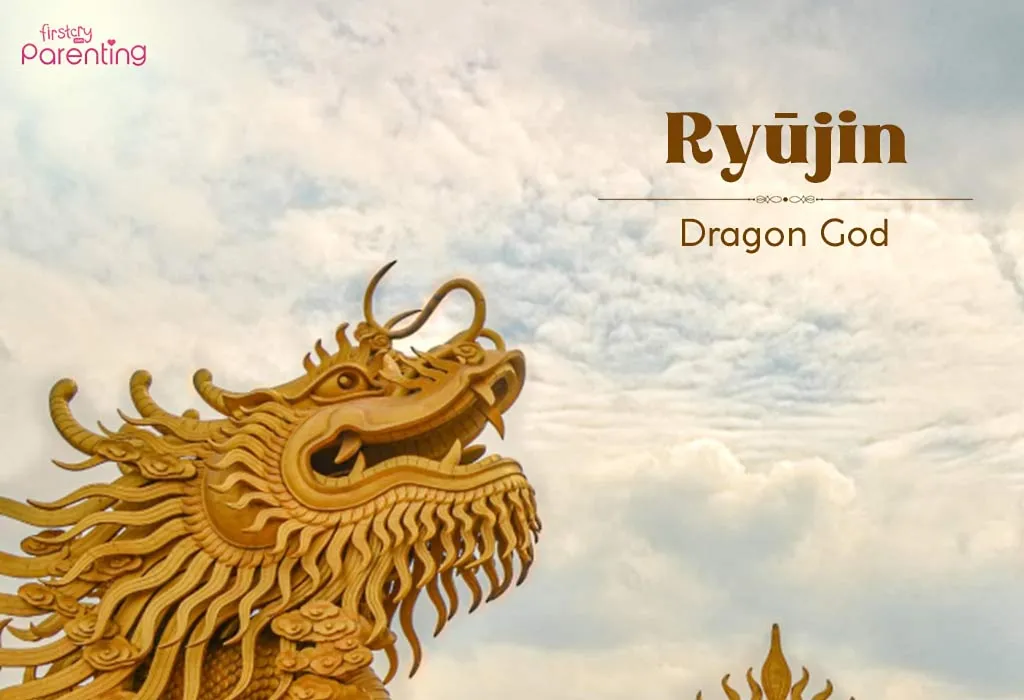
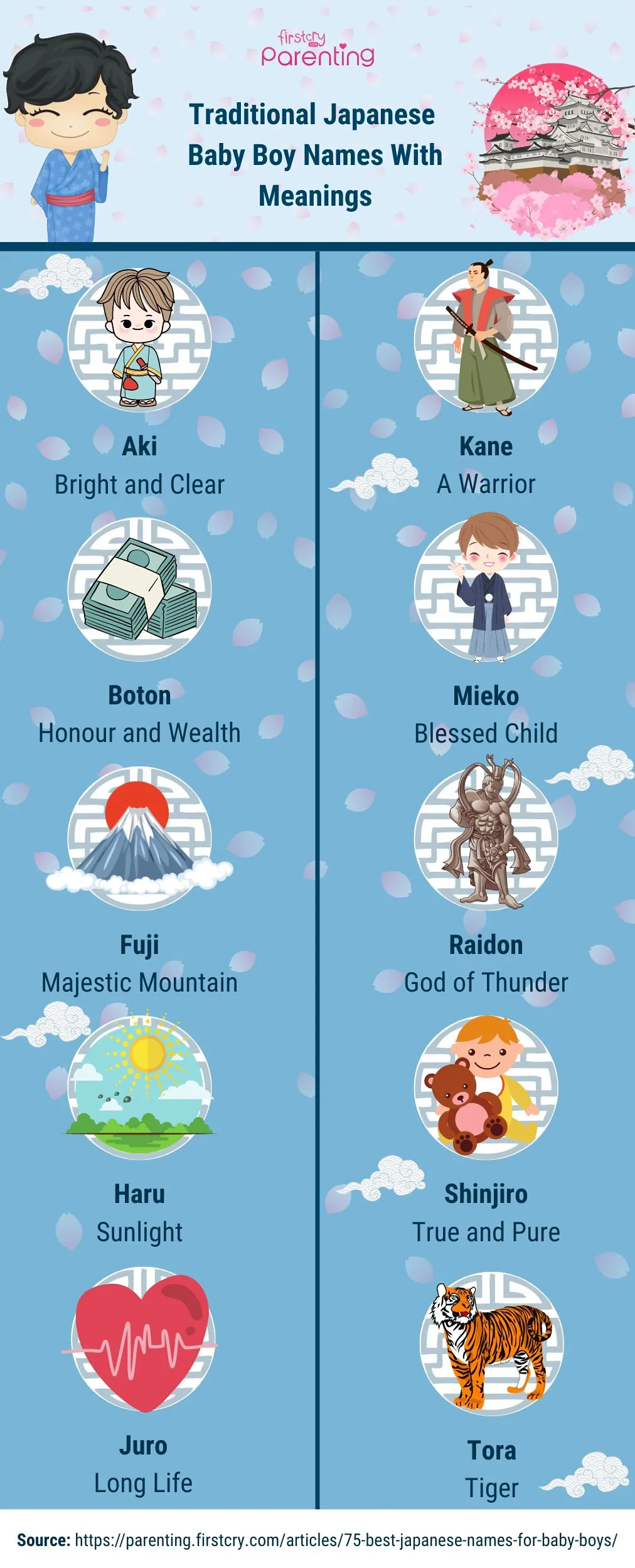

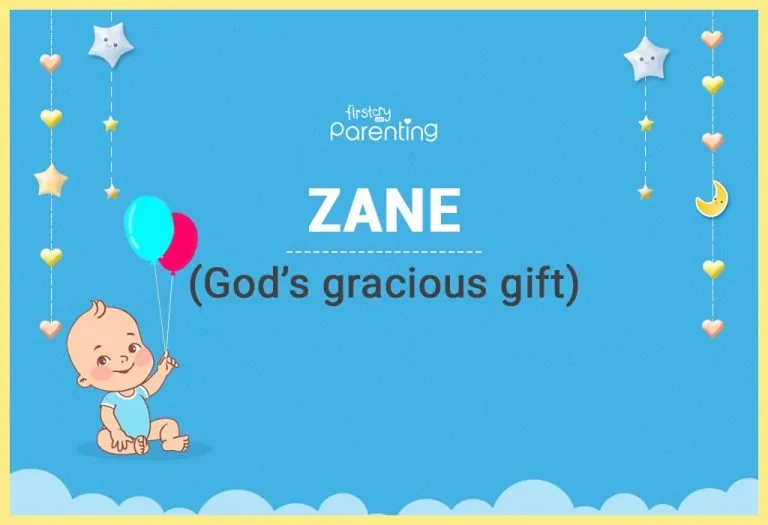

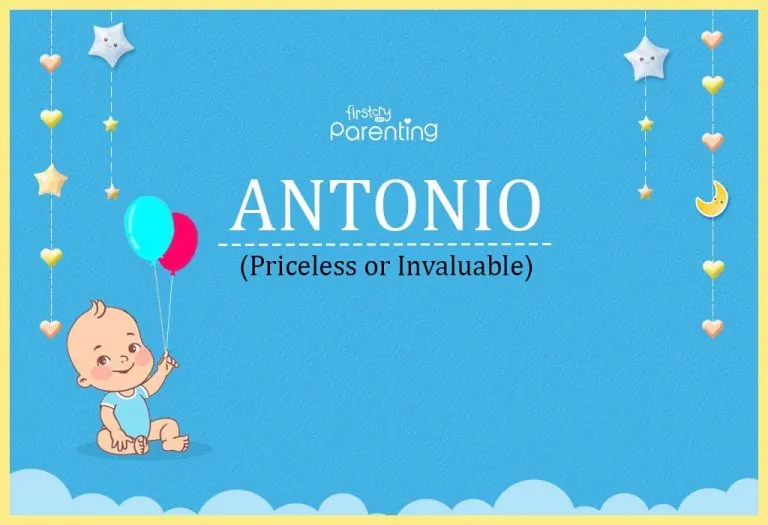



.svg)


















